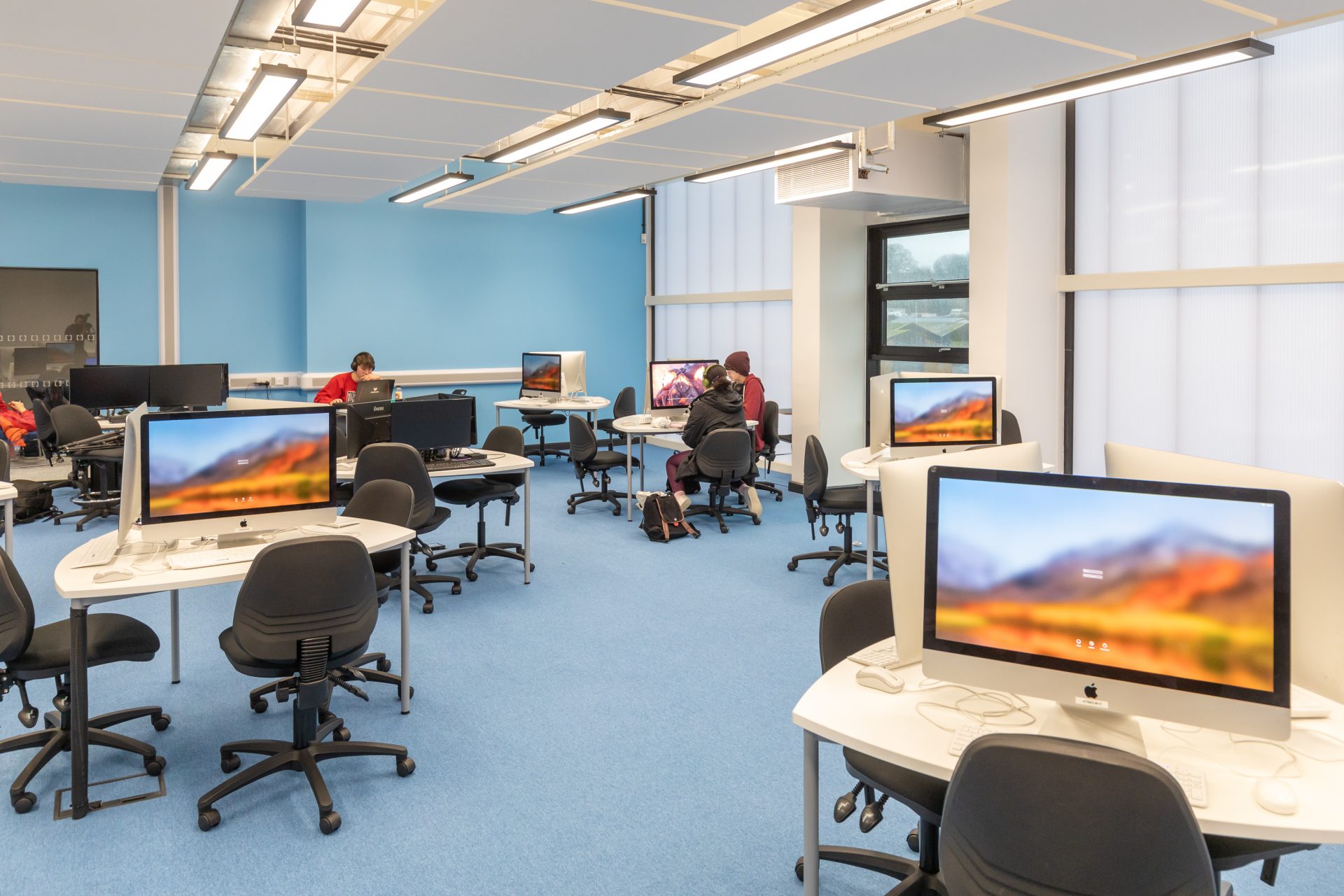6th December 2023
Students at South Devon College are striding ahead in technology sectors, thanks to funding worth over £666,000 from the Local Skills Improvement Fund (LSIF).
The fund is designed to enable further education providers to respond collectively to the priorities in their Local Skills Improvement Plans, which are being implemented across the UK as part of the Government’s Skills Accelerator programme.
South Devon College is receiving a share of over £200m of funding, and is focusing on the areas laid out by the Devon and Somerset Local Skills Improvement Plan, jointly led by Devon and Plymouth Chamber of Commerce and Somerset Chamber of Commerce.
The aim of the published SW-based plan is to work with employers and education providers to produce a skilled workforce better matched to the needs of business. This follows months of engagement with businesses across the South West, one of the largest Local Enterprise Partnerships in the UK, who highlighted key changes needed to ensure they have access to a skilled labour market, both now and in the future, especially within green skills as the Uk heads towards the Net Zero goal. The focus is on the three sectors identified as Transformational Opportunities for the area – Energy, Engineering, and Digital.
The College is planning on using the funding for three different projects covering all these areas – Digital for All, Energising Our Sustainable Future, and Advanced Engineering. These training provisions will ensure students are equipped with the very skills that are needed for the future workforce, both locally and nationally.
The Digital for All project will focus on developing specialist digital learning, including vital cyber security skills, sharing knowledge, with user through to IT professional level training and a ‘sandbox’ environment to safely test responses to simulated cyber attacks.

The project will involve the upgrade and reconfiguration of two IT rooms, moving them onto separate, firewall-protected servers, creating a safe environment for simulating cyber attack and response.
The rooms will be configured to allow ‘red team / blue team’ simulations, which play an important role in defending organisations against a wide range of cyber attacks from today’s sophisticated adversaries. A suite of modular cyber security provision will be developed, from all staff organisational awareness training through to specialist cyber security provision for IT professionals.
Steve Caunter, Assistant Principal Hi Tech and Digital, said: “The funding provided for state-of-the-art equipment, incorporating the newest technology, will enable us to tap into the potential talent within our young people and existing workforce, spanning across the entire region.
“A cyber attack simulation provides numerous benefits for organisations seeking to enhance their cybersecurity preparedness. It allows for a proactive and controlled testing of a company’s defense mechanisms, identifying vulnerabilities and weaknesses in the existing infrastructure before malicious users can exploit them.”
Simon Thorpe, Head of Digital and Computing at South Devon College, added: ”Simulations foster collaboration and communication among various teams, such as IT, security, and management, promoting a holistic understanding of potential threats and the most effective ways to manage them.
“Furthermore, these exercises offer an opportunity to evaluate incident response capabilities, allowing organisations to refine and optimise their procedures for detecting, containing, and recovering from a cyber attack. Our cyber attack simulation will play a crucial role in building a resilient and adaptive cybersecurity strategy, ultimately reducing the risk of successful real-world cyber threats.”
The Energising Our Sustainable Future provision will further enhance the College’s Electric Vehicle training provision, focusing on EV diagnostics, reconfiguring an existing training room to a dual-purpose classroom / specialist EV diagnostic workshop.

Enhancements will be made to the retrofit / green construction facility, adding a PV battery installation training facility and developing new modular provision for PV battery storage installation. A cross sector modular sustainability programme will be developed that can be deployed to businesses, employees and current students, raising awareness of carbon reduction options and approaches.
Steve Caunter believes that investment in training programs for EVs is essential. He said: “Electric vehicle maintenance training is crucial for ensuring the safety of technicians, optimising vehicle performance, reducing costs, and supporting the growth of the electric vehicle industry. As the adoption of electric vehicles continues to rise, investing in skills becomes increasingly important to meet the demand for skilled professionals in this evolving field.”
The planned scope within the transformational opportunities engineering sector is to create an Advanced Marine Engineering Vessel Digital Simulation Suite. This facility, based at the College’s Marine Academy at Premier Marinas’ £75 million development on the banks of the River Dart, will provide the capability to simulate behaviour of hull designs in an accurate virtual hydrodynamic environment. Effects of modifications on vessel stability can be accurately modelled.
This facility will also serve as a bridge between the other projects, as it will allow digital / virtual vessel operation training in preparation for forthcoming large-scale energy projects, such as FLOW (Floating Offshore Wind in the Celtic Sea), linking to the Digital for All and Energising Our Sustainable Futures projects. Within this, a modular suite of provision from vessel handling through to advanced vessel design and stability testing will be developed with employers and shared regionally.

This is a mock up of how the Advanced Marine Engineering Vessel Digital Simulation Suite may look
Adrian Bevan, Head of Curriculum (Senior) Technology at South Devon College, commented: “The Simulation Suite will be of great advantage to our students, as it will provide them with ‘hands on’ experience of vessel hull design and safety aspects within engineering.
“The development of these skills, enhanced by the use of this equipment, is a critical aspect of the training and education of individuals in the engineering sector.”
The published LSIP aligns with a range of regional and national strategies and builds on the work of the Heart of the South West Skills Advisory Panel (SAP), and a significant number of local and sector-specific research, as well as Labour Market Information reports and the Strategic Development Fund programme.
The funding is allocated to investment in new facilities and equipment, as well as funding the delivery and development of new courses and curriculum.
It is also designed to support excellence in college leadership, governance and teaching to create a sustainable approach to addressing local skill need.
Laurence Frewin, Principal of South Devon College, said: “The LSIP allows all the excellent colleges in the Heart of the South West to work together with the shared view of educating the future workforce. The Local Skills Improvement Fund helps gives us the ability to provide the next generation with the skills needed to grow the South West’s economy.”
Sustainable Development Goals that align with this story:












